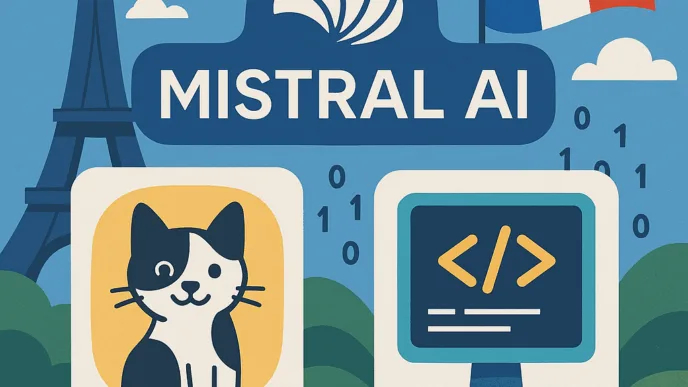What You Should Build With AI—An Analysis of 400+ AI Startups Backed by Y Combinator
“Be careful what you let become critical to you. Try to get yourself into situations where the most urgent problems are ones you want to think about.”
— Paul Graham
The Search for Good Use Cases in AI
If you’re wrestling with the question, “What should I create with AI that stands a strong chance for success?”, this article offers a data-driven perspective. By looking into Y Combinator (YC)—widely viewed as a leading indicator in the startup ecosystem—this deep dive sheds light on what kind of AI-focused ventures attract investments and why.
Y Combinator’s impressive track record in spotting and nurturing successful startups has reshaped entire industries. Their portfolio stands as a potent signal for emerging technologies and disruptive solutions. Given artificial intelligence’s transformative possibilities, I decided to dig into YC’s AI-centered companies to uncover:
- Hot industries and sectors for AI startups
- Which AI use cases and applications investors find appealing
- The backgrounds of successful AI founders
- Additional themes such as AI Safety, accessibility, explainability, and more (detailed in the original post)
I gathered and analyzed information on 417 AI-oriented companies from Y Combinator’s 2023 and 2024 cohorts.
Objectives of This Analysis
- Which industries are drawing the most AI innovation?
- What AI apps are grabbing investor attention?
- Which founder traits are common in YC-backed AI startups?
- Practical insights to help you decide what to build with AI.
Note: Y Combinator invests $500,000 for a small equity stake in each accepted startup. Over three months, founders receive mentorship and resources to accelerate product and user growth. By analyzing YC’s AI startups, we get a valuable window into emerging AI trends.
Data Collection
I obtained information from YC’s Startup Directory for the 2023 and 2024 Summer and Winter cohorts. After filtering for AI-focused ventures, I cleaned the data and categorized each startup by sector, verifying tags from company descriptions to capture their core focus.
In total: 417 AI startups were identified, with details such as:
- Founders and their backgrounds
- Startup URLs
- Sector/category tags
- Descriptions of company focus
For those seeking the complete dataset or a curated subset, you can find it at [the link in the original article] or via the newsletter mentioned.
Snapshot: 417 AI-Focused Startups
Where Is AI Innovating the Most?
Leading industry intersections with AI (approximate percentages):
- Healthcare/Biotech (10.8%) — 45 companies
- Example: Elythea, applying machine learning to lower maternal mortality
- Fintech (9.1%) — 38 companies
- Example: Arcimus, AI-based premium audits for insurance
- Developer Tools (8.9%) — 37 companies
- Example: Sudocode, offering AI services for dev teams
- Sales/Marketing (8.2%) — 34 companies
- Example: MicaAI, helping streamline sales processes
- Education (4.3%) — 18 companies
- Example: Studdy, an AI-driven tutor
B2B vs. B2C
- B2B: ~338 startups (81.1%)
- Examples:
- GigaML: On-premise large language model deployments
- Constructable: AI assistant for construction workflows
- AiSDR: AI-driven sales outreach platform
- Corgea: Automated fixes for vulnerable code in enterprise software
- Examples:
- B2C: ~79 startups (18.9%)
- Examples:
- Rex: AI-powered personal fitness and nutrition advice
- PocketPod: AI-generated podcasts customized by user interests
- Shortbread: “Netflix for comics” leveraging AI
- Roame: AI-based travel planning and booking
- Examples:
Key Takeaways
- Enterprise Solutions Dominate: Around 80% focus on B2B offerings, highlighting strong investor confidence in business-facing AI products.
- Consumer Sector Is Underserved: Fewer than one in five AI startups target a mass consumer audience—potentially indicating a gap for promising consumer-focused applications.
- Technical Backgrounds: Many founders have deeply technical expertise (74.8%, based on the original dataset), which likely steers them toward solving specialized B2B problems.
Concluding Thoughts
Y Combinator’s AI cohort reveals that enterprise solutions remain the prevailing path for AI startups, especially in domains like healthcare/biotech, finance, and developer tools. These categories demonstrate robust investor interest due to the immediate value AI can add in automating tasks, improving decision-making, or creating data-driven insights.
While B2C AI startups are comparatively fewer, that scarcity might indicate openings for consumer-related applications—if founders can effectively tackle user acquisition, monetization, and product-market fit challenges.
Overall, if you’re wondering “What should I build with AI?” the data suggests looking toward sectors with demonstrated B2B traction or exploring underrepresented consumer niches. In either case, a strong technical edge and an intimate understanding of your target market’s pain points appear crucial for success.














